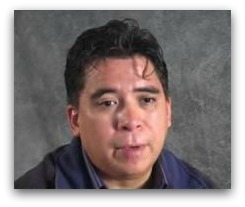
Case Overview
By Bruce Fischer
Nancy DePriest was raped and murdered in Austin, Texas, in 1988. Nancy was a manager of a Pizza Hut and was attacked inside the restaurant. Authorities didn’t look far to find their suspects.
Christopher Ochoa and his friend Richard Danziger unknowingly made a life-changing decision when they decided to go and take a look at the DePriest crime scene. Their curiosity peeked because both worked at another Pizza Hut restaurant. Detective Hector Polanco saw it differently. Polanco was suspicious of their behavior and wondered why they were nosing around the crime scene and decided to bring the two to the station for questioning. There was absolutely nothing wrong with Detective Polanco taking them in. In fact, up to that point, it was good police work. Unfortunately the actions of Polanco shortly thereafter were far from honorable and led to the wrongful conviction of two innocent men.
Christopher Ochoa was subjected to an all-day interrogation by Polanco that included intimidating threats and harsh language. Ochoa was repeatedly threatened with the death penalty if he didn’t confess. Polanco even described to Ochoa how the needle would go into his arm delivering the fatal injection.
This interrogation took place on a Friday. The police put Ochoa in a hotel for the weekend, shielding him from any outside contact. Ochoa was told it was for his own protection. This gave the police time to prepare a confession for Ochoa to sign. Well, they didn’t actually have to prepare anything. Ochoa was presented with the same confession that Polanco had used on two previous suspects. It turned out those suspects had solid alibis, so Polanco simply whited out their names on the confession and added Ochoa’s. It appears that the urgency to make an arrest in the case was far more important than finding the truth.
After another long interrogation, faced with the death penalty if he didn’t agree to the terms set by the authorities, Ochoa signed the confession. When later given a public defender, Ochoa was advised to agree to a plea bargain by which he would testify against Richard Danziger. Ochoa saw this plea bargain as the only way to spare his life. Ochoa and Danziger were both convicted and received life sentences. Ochoa was twenty-two at the time; Danziger was eighteen.
Years later the actual killer, Achim Marino, found religion while serving time for other offenses. Marino decided it was time to set the record straight and confess to the crime. He sent letters to the Governor’s office as well as the district attorney of Texas. His letters were ignored, prompting him to write another letter giving a detailed description of the crime scene. This letter reopened the investigation. Christopher Ochoa and Richard Danziger were exonerated in 2002.
This case is a prime example of the damage caused by coerced confessions. We repeatedly find that coerced confessions do not provide accurate information, yet these tactics continue to be implemented.